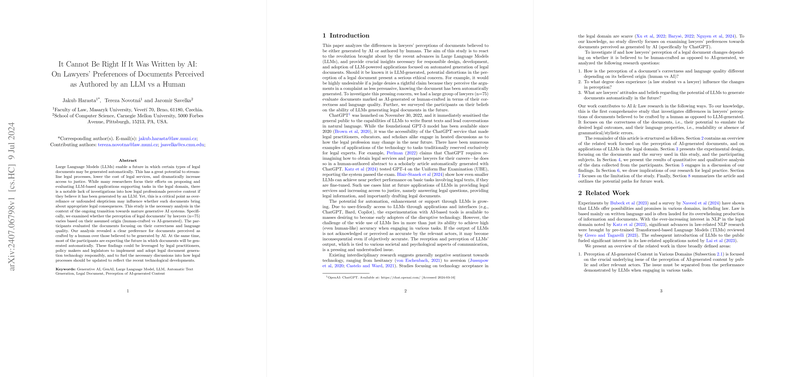The paper "It Cannot Be Right If It Was Written by AI: On Lawyers' Preferences of Documents Perceived as Authored by an LLM vs a Human" explores the perception of legal professionals towards documents that they believe are either human-crafted or AI-generated. The context for this paper is the growing potential for LLMs to automate the generation of legal documents. Such automation could streamline legal processes, reduce costs, and enhance access to justice.
The paper specifically addresses a gap in research by focusing on how legal professionals perceive documents when they suspect these have been generated by AI. This perception is critical since it could influence legal outcomes, with professionals possibly exhibiting over-reliance on AI or unjust skepticism towards it.
Methodology:
- The paper evaluated 75 lawyers who were asked to assess legal documents for correctness and language quality.
- Documents were presented with indications of their supposed origin, whether human or AI.
Findings:
- There was a notable preference among the legal professionals for documents perceived as created by humans.
- Despite this preference, the participants also anticipated a future where the generation of legal documents would be automated by AI.
Implications:
- These insights could inform legal practitioners, policymakers, and legislators on responsibly adopting AI for legal documentation.
- The findings highlight the need for discussions on updating legal processes in light of emerging AI technologies.
The paper thus contributes to understanding the acceptance and potential integration challenges of AI technologies in the legal domain, suggesting that while there is a preference for human-attributed work, there is also an openness to future AI integration.
